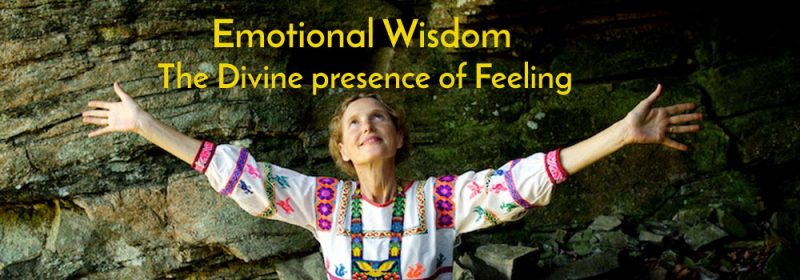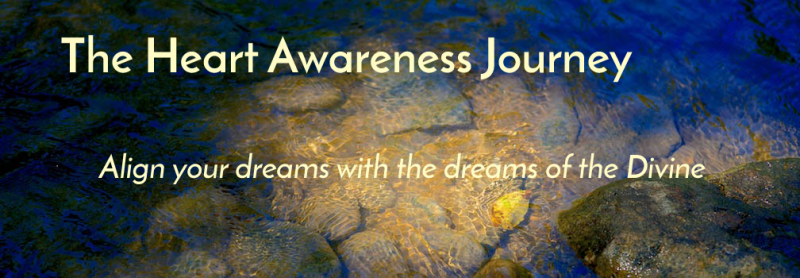In seeking guidance about how to navigate life’s challenges, how many times have you been told to engage in positive thinking? A plethora of self-help guides instructs us to overcome our “negative” emotions, by thinking positively and focusing on the outcome we desire, which will “manifest our dreams.” And what could possibly be wrong with “positive thinking”? On the surface, nothing. However, when it is practiced as a means of denying our actual experience and rejecting uncomfortable emotions, it does not serve us at all. When we are fixated on an outcome, believing that it will solve our problems and make us happy, we miss out on the life that is happening right now and we can also set ourselves up for a great deal of disappointment.
Don’t get me wrong… positive thinking is powerful and it’s great to see the glass as half full. But it doesn’t always work, so why not?
Let’s see if you recognize this experience: you find yourself thinking negatively about life and try to engage with some uplifting thoughts, only to find that a few minutes later you’ve fallen back into the fearful, resentful or dismal perspective once again.
Thinking positively simply won’t work if you don’t acknowledge and allow whatever emotions you are feeling right now. Our emotions are E-motion – energy in motion. They want to move. When we don’t acknowledge and feel into them, they will find unhealthy ways to express themselves. This can be through physical symptoms or dysfunctional behaviours.
One of the main ways that unacknowledged emotional energy manifests is by driving our mind around and around like the wind, propelling a windmill.
In our culture, we have come to polarize our emotions into “positive” and “negative” ones. The issue is that we are taught to suppress the “negative” emotions and to embrace “positive thinking.” We’ve designated happiness as a destination where we are supposed to arrive and reside, whilst fear, grief and anger are “negative” feelings that we should avoid. In fact, these so-called negative emotions all have important messages to tell us about our life situation. However, we must listen to them. Fear warns of present danger, grief helps us process loss, while anger gives us the courage to set healthy boundaries in the face of abuse. Yes, they can also be expressed in negative ways, but that is a function of the ego-mind, not of the inherently “negative” nature of the emotions.
All of our emotions, including happiness, will arise and subside as we respond to life. We get trapped when we see happiness as something we can hold onto. If you want to change your thinking, attend to what you are feeling.
Why “positive thinking” doesn’t always work and what to do about it
In seeking guidance about how to navigate life’s challenges, how many times have you been told to engage in positive thinking? There are a plethora of self-help guides that instruct us to overcome our “negative” emotions, by thinking positively and focusing on the outcome we desire, which will “manifest our dreams.” And what could possibly be wrong with “positive thinking”? On the surface, nothing. However, when it is practiced as a means of denying our actual experience and rejecting uncomfortable emotions, it does not serve us at all. When we are fixated on an outcome, believing that it will solve our problems and make us happy, we miss out on the life that is happening right now. We can set ourselves up for a great deal of disappointment.
Don’t get me wrong… positive thinking is powerful and it’s great to see the glass as half full. But it doesn’t always work, so why not?
The energy of our emotions drives the windmill of our mind
Let’s see if you recognize this experience: you find yourself thinking negatively about life and try to engage with some uplifting thoughts, only to find that a few minutes later you’ve fallen back into the fearful, resentful or dismal perspective once again. Thinking positively simply won’t work if you don’t acknowledge and allow whatever emotions you are feeling right now.
Our emotions are E-motion – energy in motion. They want to move. When we don’t acknowledge and feel them, they will find unhealthy ways to express themselves. This can be through physical symptoms or dysfunctional behaviors. One of the main ways that unacknowledged emotional energy manifests is by driving our mind around and around like the wind, propelling a windmill.
In our culture, we have come to polarize our emotions into “positive” and “negative” ones. We are taught to suppress the “negative” emotions and to embrace “positive thinking” in order to be happy. We’ve designated happiness as a destination at which we are supposed to arrive and reside, whilst fear, grief and anger have been relegated to “negative” experiences that we should avoid.
In fact, these so-called negative emotions all have important messages to tell us about our life situation. However, we must learn how to listen to them. Fear warns of present danger, grief helps us process loss, while anger gives us the courage to set healthy boundaries in the face of abuse. Yes, they can also be expressed in negative ways, but that is a function of the ego-mind, not of the inherently “negative” nature of the emotions.
All of our emotions, including happiness, will arise and subside as we respond to life. We get trapped when we see happiness as something we can hold onto. If you want to change your thinking, attend to what you are feeling.
Try this next time you find yourself thinking negatively:
- Ask yourself “what am I feeling?, what am I really feeling?”. Like the primary colors, there are really just a few primary emotions. Happiness, sadness, anger, fear, sympathy, and love. It is most often fear, grief or anger that underlie our negative outlook.
- Try to identify one or more of these primary emotions that you are feeling. Most of the time, you’ll just come up with another perspective: “I’m confused,” “it’s not fair” or “I feel misunderstood”. These are not emotions. They are thoughts. Come back to the feelings.
- Once you’ve identified what you are feeling, bring your awareness to it. Breathe into the feeling and lean into it rather than resisting it and pushing it away.
- Allow yourself to get curious about where you feel the emotions in your body as physical sensations, even if it is uncomfortable. Use your breath to help you.
- The key is to bring your heart-connected compassionate and accepting awareness to whatever you are feeling. Once again, it can help to use your breath.
- Avoid the temptation to analyze why you are feeling the way you are. If the emotion has something to reveal, it will arise as insight without any effort. You don’t have to chase after meaning.
- Your emotions want to be expressed in a healthy way. With fear and anger, it can be particularly helpful to do some kind of physical movement to express the feeling. You can run, dance, workout, throw cushions around etc. Grief may want to express through tears. Writing is a good way to express any of our emotions.
It can be truly amazing how your perspective shifts after you’ve acknowledged, felt and expressed your emotions in this way. You will naturally be able to shift your thoughts to a more positive outlook on things.
Make sure your positive thinking is aligned with the vision of the heart
We can sometimes get fixated on an outcome or a ‘dream’ that we believe will make us happy. Then, we direct our positive thinking towards that end. But we need to ask ourselves if that ‘dream’ is born of the vision of the heart or if it is the product of the fears and desires of the ego-mind.
As we have seen, happiness is not a destination spot. We can get trapped in focusing intently on what we think we need in order to be happy and refuse to engage with life as it is showing up right now. If our dreams ar not aligned with the wisdom of the heart we can discover that, even when we achieve them, they don’t actually bring us the fulfillment we desire. Check out my next blog on “The Heart’s Intention” to find out about how to connect with that inner wisdom.
 As an initiated Marakame or shaman in the indigenous Huichol tradition of Mexico, Prema Sheerin is a healer, spiritual counselor and teacher. Prema has worked with individuals, couples and groups for 25 years, supporting people to reveal the knowing of the heart, bring forth balance and healing, and find their path in the Divine play of life. She offers workshops internationally and has a traditional healing and life coaching practice in Asheville, North Carolina. Prema offers various programs for the Sacred Fire Community
As an initiated Marakame or shaman in the indigenous Huichol tradition of Mexico, Prema Sheerin is a healer, spiritual counselor and teacher. Prema has worked with individuals, couples and groups for 25 years, supporting people to reveal the knowing of the heart, bring forth balance and healing, and find their path in the Divine play of life. She offers workshops internationally and has a traditional healing and life coaching practice in Asheville, North Carolina. Prema offers various programs for the Sacred Fire Community





